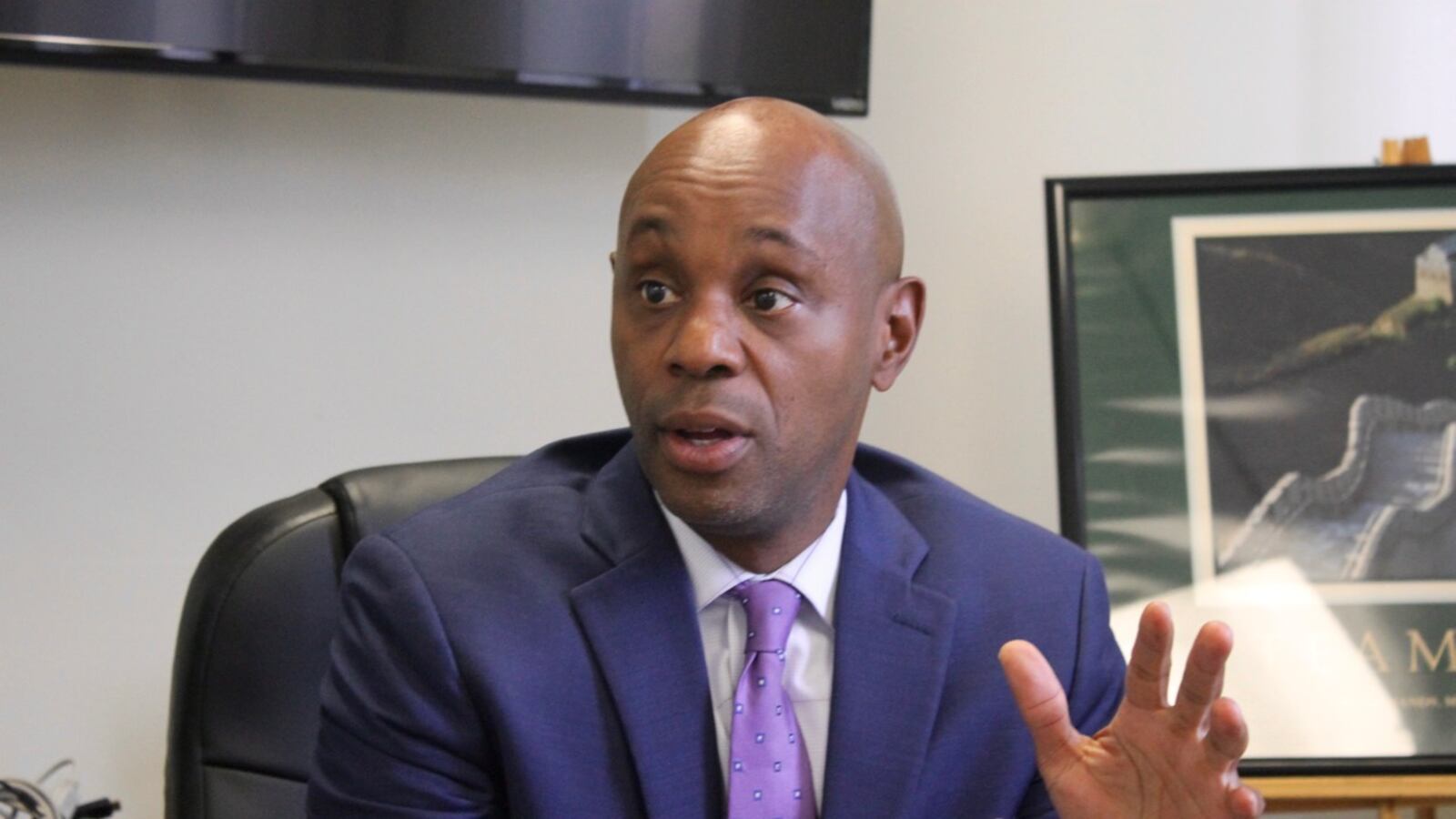Shelby County Schools has slashed the number of people who have the ability to alter student grades, in one of several responses to a grade-changing scandal that is rocking the district.
Principals and assistant principals, school counselors, secretaries, and some people who work in the district’s central office can no longer edit student grades without designation from a principal, Superintendent Dorsey Hopson told state education officials in a Jan. 11 letter outlining his response to the unfolding controversy of improper grade-changing at some Memphis high schools.
All of those people had been able to edit student report cards and transcripts. Since the end of January, Hopson said, only teachers, a records secretary, and one other designee of the principal would have that right at the school level.
This means the school records secretary who was fired after changing grades at Trezevant High School, the scandal’s epicenter, would not have been barred from revising grades under the new rules. Hopson’s letter also does not specify how many of the grade changes detected during an external audit of district high schools’ records were made by people who have lost access.
State Education Commissioner Candice McQueen had demanded to know who had access to the district’s grading system, called PowerSchool, in a Dec. 22 letter to Hopson. She also asked for the district’s written policies for entering and editing grades, for details about how employees had been trained on those policies, and for a host of other explanations about how the district would prevent inappropriate grade changes from happening in the future.
Hopson’s letter answered those questions and detailed multiple changes that he said were underway to prevent improper grade changes. In addition to tightening access, he said, school leaders and coaches had undergone training about grading procedures the week of Jan. 14, and the district was planning similar training for teachers as well as developing a plan to renew the training annually.
But even as Hopson explained how the district was shoring up its procedures, he pointed out that the changes might not have prevented what happened at Trezevant.
The secretary there who made the grade changes had undergone training about grading policies, Hopson told McQueen. “The employees who have been terminated were not following established protocols and procedures and clearly conspired to intentionally falsify transcripts,” he wrote in the letter, which Chalkbeat obtained.
He also suggested that ensuring that all grading changes are appropriate could remain difficult for Shelby County Schools given the fact that many students change schools throughout the year, though he didn’t elaborate on how high student mobility specifically makes tracking grades difficult.
“Such discontinuity can make grading a challenge as students move from school to school at inopportune times,” Hopson wrote. “We sometimes have cases which require thoughtful deliberation to resolve [grading issues] in a manner which appropriately addresses student needs. While we will be more concerted in our efforts to have teams of Shelby County Schools educators address such issues, as opposed to staff making unilateral decisions, I trust that you and your staff will continue to be a resource for us should we have questions about specific issues.”
Hopson’s letter does not address one sweeping clarification to the district’s grading policies: temporarily halting the use of “grade floors,” a practice of setting a minimum on the lowest grade a teacher can assign. The practice had been a gray area in the district’s rules and had been used to justify some grade changes at another school, Hamilton High, where inappropriate changes were also detected.
State education officials said the district’s initial steps to respond to the scandal are positive but that the department would continue to monitor closely. In the Dec. 22 letter, McQueen ordered additional audits for the next three years from Shelby County Schools.
“It is encouraging to see the responses from the district and the new procedures and protocols they are putting in place,” said Sara Gast, a Department of Education spokesperson. “We will continue conversations with them as they continue their review and implement these new steps to ensure that all the right safeguards are in place to prevent these situations from happening again.”
You can view Hopson’s Jan. 11 letter in full below:

